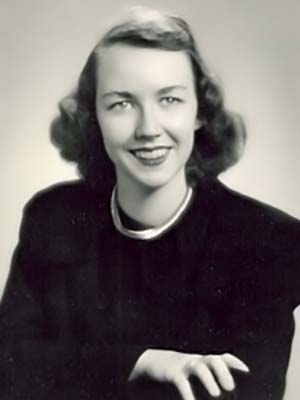Good Country People by Flannery O'Connor - Summary
Mrs. Hopewell is the focalizer mainly but this shifts sometime, slightly
to Joy or to Mrs. Freeman.
Every morning, Mrs. Freeman comes over to the Hopewells' to
"carry on business". They speak of the Freeman daughters, Glynese and
Carrramae, while Joy, Mrs. Hopewell's 32 year old artificial-legged daughter,
is in the bathroom. Mrs. Freeman works for Mrs. Hopewell and Mrs. Hopewell is
not ashamed because the Freemans are not trash. Mrs. Hopewell was told that
Mrs. Freeman was extremely nosy, but she was the only applicant. So, Hopewell
decided to hire the Freemans anyway as tenants and land workers and put her in
charge so that her nosiness would be put to good use.
Mrs. Freeman would never admit she was wrong. She thinks a lot of
herself and expresses this notion frequently. She frequently intrudes on the
Hopewells' privacy but Mrs. Hopewell keeps her because the Freemans are good
country people and those are rare. She has had much experience with trash.
Joy lost her leg in a hunting accident when she was ten. She
changed her name to Hulga. Her mother refuses to refer to her as Hulga. MRS.
Freeman, however, takes pleasure in using the name. Hulga rejoices in the ugly
sound of her new name, but feels that Mrs. Freedman's speaking the name is an
intrusion upon her privacy. Then Hulga realizes that Mrs. Freeman is fascinated
with deformities. Hulga goes to lengths to be unattractive.
Hulga has a PhD in philosophy. She is bright, her mother knows, but
sad and refuses to socialize. She laments her weakened physical state and were
it not so says she would be teaching in a university.
A bible salesman comes over. He tries to guilt her into buying a
bible. There is no bible in the parlor because Joy is an atheist. He is a
believer. He stays for dinner and the two seem to have a covert interest in one
another. When he leaves they engage in conversation. She lies and says she is
17 years old (he's 19). They arrange to meet for a picnic, and she imagines
that she seduces him and turns his resulting shame into a deeper understanding
of the truth of life.
They go out. He is excited and bought a new hat for the occasion.
He asks about her leg and she turns hostile and says she does not believe in
god. He kisses her. She is glad to discover there is nothing special about
kisses. She maintains firm control. Even though it is her first kiss she feigns
normalcy. Nothing turns him off, even more conflicting theological banter. They
find a barn and climb to the second story. She confesses her age and that she
has degrees, and he coaxes her with a country dialect and kisses to tell him
she loves him, and then to prove her love. She thinks he means sex and is happy
she succeeded in seducing him. But he asks to see her wooden leg. He says that
that is what makes her different from everyone else.
She is completely shocked. She feels that for the first time,
someone discovered the truth about her, via instinct. She feels born again
through him. He unrolls her pant leg. She shows him how to take it on and off
and allows him to try. He takes it off. She orders him to put it back on but he
refuses, telling her that she has got him instead. She feels entirely dependent
on him. She is overcome with emotion and thought abandons her, and this is
foreign to her. She asks for her leg back.
He takes a pillbox, a flask of whiskey and pornographic playing
cards out of a hollowed bible. He offers her a swig. She is shocked. She tries
to get her leg but he pushes her down, angry that she has misled him. She is
incredulous, and blames him for being a hypocrite like all Christians. He says
he does not believe, indignant at her expressed superiority.
He grabs the wooden leg and puts it in his valise and leaves her.
The story ends with Hopewell's and Freeman's conversation about the simplicity
of country folk.









Comments
Post a Comment
Hey friend! 🌈 I can't help with your assignments but maybe other readers can. Good luck! 🤞